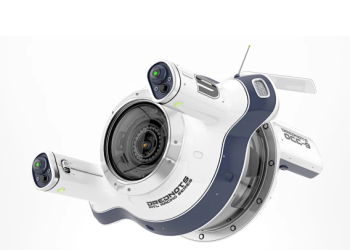In today’s interconnected world, social media has become an integral part of our daily lives, shaping how we communicate, consume information, and interact with the world around us. From its humble beginnings as online chat rooms and forums to the sprawling networks of today, social media has evolved into a powerful force that permeates every aspect of modern digital culture.
The Evolution of Social Media
The rise of social media can be traced back to the early days of the internet, with platforms like MySpace and Friendster paving the way for the social networking giants of today. As technology advanced, so too did social media, with the advent of platforms like Facebook, Twitter, and Instagram transforming how we connect and share with others online.
Impact on Communication Patterns
Social media has fundamentally altered the way we communicate, replacing traditional forms of communication with instant, asynchronous interactions. With the click of a button, we can now share thoughts, photos, and videos with friends and followers across the globe, breaking down geographical barriers and fostering connections like never before.
Cultural Impact of Social Media
Beyond its role as a communication tool, social media has also had a profound cultural impact, shaping the way we consume and create content. From viral trends and memes to the adoption of new slang and communication styles, social media has become a breeding ground for cultural innovation and expression.
Social Media and Identity Formation
In the digital age, social media plays a central role in shaping our identities, allowing us to curate and present ourselves to the world in ways that were previously unimaginable. Whether through carefully crafted Instagram posts or witty tweets, we use social media to construct and maintain our online personas, often blurring the lines between reality and virtuality in the process.
Social Media and Consumer Behavior
The influence of social media extends beyond the realm of communication and culture, impacting even our consumer behaviors. With the rise of influencer marketing and sponsored content, social media has become a powerful tool for brands to reach and engage with consumers, shaping purchasing decisions and driving trends in the process.
Social Media and Political Discourse
In recent years, social media has emerged as a battleground for political discourse, with platforms like Twitter and Facebook playing host to heated debates and discussions on a wide range of issues. While social media has the potential to amplify marginalized voices and spark social change, it also presents challenges such as the spread of misinformation and the rise of echo chambers.
Social Media and Mental Health
Amidst its many benefits, social media also poses risks to our mental health, with studies linking excessive usage to feelings of loneliness, depression, and anxiety. As we spend more time scrolling through curated feeds and comparing ourselves to others, it’s important to be mindful of the impact that social media can have on our well-being and to take steps to prioritize our mental health.
Regulatory Challenges and Privacy Concerns
As social media continues to evolve, so too do the regulatory challenges and privacy concerns surrounding it. From data breaches and privacy scandals to the spread of harmful content and hate speech, social media platforms are facing increasing scrutiny from lawmakers and regulators seeking to hold them accountable for their actions.
Future Trends in Social Media
Looking ahead, the future of social media is both exciting and uncertain. As technology continues to advance, we can expect to see new innovations and trends emerge, from the rise of virtual reality social networks to the integration of artificial intelligence into our online interactions. However, with these advancements come challenges, including the need to address issues of privacy, security, and misinformation.
Conclusion
In conclusion, the influence of social media on modern digital culture cannot be overstated. From its humble beginnings as a means of connecting with friends and family to its current status as a ubiquitous force shaping our lives in countless ways, social media has fundamentally altered the way we interact with the world around us. As we navigate the complexities of this ever-changing landscape, it’s essential to remain mindful of both the opportunities and challenges that social media presents, ensuring that we harness its power for good while mitigating its potential harms.

FAQs After The Conclusion:
- How has social media changed the way we communicate?
- What impact does social media have on cultural expression?
- Can social media influence consumer behavior?
- What role does social media play in shaping political discourse?
- Is social media addictive?
- How can I protect my privacy on social media?
- What are some emerging trends in social media?
- What are the potential risks of excessive social media usage?
















